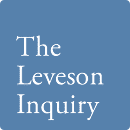
This post originally appeared on the Independent Blogs
As the often theatrical spectacle of the Leveson hearings — with its mix of posturing, jousting, inquisition and exposé — draws to a close, the big question is what Leveson will recommend this autumn. Will we see proposals that defend press freedom and promote high professional standards, or do we risk facing proposals that limit press freedom and serious investigative journalism?
Given the range of unethical and illegal behaviour exposed in the phone-hacking scandal, and the tawdry tales of political-media cronyism under the spotlight at the Inquiry, there may be a risk that Lord Justice Leveson will prioritise standards and regulation over our sometimes riotous press freedom.
Calling for independent, self-regulation in the face of the excesses of some in News International and elsewhere cuts little ice with many. But it is worth recalling the most basic elements of our democracy that underpin the need to keep the state well out of our press. Our universal and fundamental right to free speech, to hold opinions, share information (across borders and different types of media), and express views is enshrined in international charters and laws for good reason, not least given governments’ proclivity to interfere in that right.
The governments that most go in for controlling the press, bugging their own citizens, snooping on the net, or criminalising speech tend to be the authoritarian or totalitarian ones, whether we are thinking China, Azerbaijan, Iran or North Korea. But intrusions into press freedom in Italy and Hungary show the problem is closer to home and within democracies too. Without a free press — both online and off — we would lose a big element of our free speech, our ability to hold government and other power-holders (including big business) to account, to investigate wrongdoing, lies, and other cock-ups and conspiracies.
So higher press standards cannot come from statutory government control or regulation. But if the excesses of phone-hacking, and over-close cronyism between some in the media, police and politics, are to be tackled, then we need a new deal. That must include a new self-regulatory body with greater teeth to tackle unwarranted invasions of privacy, false allegations and unethical behaviour. It must be a body that can set and monitor standards. And one that can offer rapid, effective and fair resolution of complaints — including a quick, fair voluntary mediation service as an alternative to lengthy, expensive court cases.
One solution propounded by some given the inadequacies of our current set-up is that press outsiders and retired editors should run the new body. But a press regulator that does not include current senior representatives of the press — not least at a time of rapid change in the technology and business model — will not get buy-in. Nor do we need to reinvent the wheel. Where appropriate laws exist we don’t need to give those powers to a statutory regulator: current laws can tackle most unwarranted invasions of privacy and can deal with bribery of public officials.
One big challenge for a new self-regulating body — and for Leveson in his report — will be how to balance the right to privacy with the need for serious journalism in the public interest. Journalists need to know that if they are digging deep into questions of misleading or false statements by politicians, or investigating public health or security risks, or tracking potentially criminal behaviour, that they have a public interest defence. At the moment, some UK laws allow such a defence, others don’t. Journalists are operating in an ad hoc and unclear legal framework that can lead them to draw their horns in and shift towards self-censorship.
And last but not least, while the tales of texts, lunches and cosy chats between some leading media figures, politicians and police may encourage an ever downward trend in trust for these groups, regulating such contacts, beyond existing law, is not the way to go either. Whether it’s the whistle-blower, or just a good source in a government department tipping a journalist off in the right direction, serious probing journalism depends on informal interaction with politicians and officials.
Some of our senior figures have shown they have little idea of where to draw the line in such relationships, so clear professional standards need setting out. But the state will over-regulate given a chance. Voluntary and professional standards combined with good corporate governance remain the only route to go if we still credit press freedom and democracy as inextricable. That is the challenge for Leveson.
Kirsty Hughes is Index on Censorship’s Chief Executive.
Index is co-hosting a panel discussion, What will Lord Justice Leveson conclude about the future of the British press? at the Frontline Club on 19 July. Details and tickets are available here.




